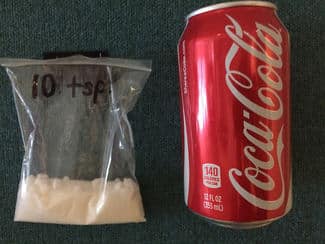Give me a little SUGAR

October 6, 2015
Posted On
One of the first things I tell my new Nutritional Therapy clients is “cut out the sugar!” Well, I don’t say it quite like that. I break it to them gently and say “Don’t worry! You won’t even miss it. We will give you all sorts of yummy things to eat to make up for it.” Sugar has an incredibly detrimental affect both on the digestive system as well as on the endocrine system. And what’s challenging for the endocrine system is life-changing for the hormones and for your ability to deal with stress. One of my clients just recently cut out the processed sugars in her diet, and right away she noticed she was much more patient with her children, had more energy and was dramatically more productive. Honey is a wonderful replacement for sugar and has so many health benefits to boot! However, please read the research below if you are tempted to replace your sugar with artificial sweeteners. In addition to being toxic to your system, artificial sweeteners are a tease for your body. Your brain tastes sweetness and is expecting sugar. When it doesn’t get it, it craves sugar more and more. It’s better to eat real-honest-to-goodness sweetness at the front end, rather than trying to trick your body. Our bodies are way smarter than we give them credit for!
A comment on artificial sweeteners:
Problems associated with aspartame consumption are neatly summarized in the book Nourishing Traditions, by Sally Fallon. “Aspartame. . . is a neurotoxic substance that has been associated with numerous health problems including dizziness, visual impairment, severe muscle aches, numbing of extremities, pancreatitis, high blood pressure, retinal hemorrhaging, seizures and depression. It is suspected of causing birth defects and chemical disruptions in the brain.
“Researchers at Utah State University found that even at low levels aspartame induces adverse changes in the pituitary glands of mice. The pituitary gland is the master gland upon which the proper function of all biochemical processes depend.
” When aspartame is digested it breaks down into the amino acids phenylalanine and aspartic acid, plus methanol. Methanol, or wood alcohol, is a known poison. Methanol is also found in fruit juices, and our regulatory agencies have seized upon this fact to assure us that the methanol by-product of aspartame is not harmful. They fail to point out that the methanol content of a diet soft drink is 15 to 100 times higher than that of fruit juices.”(17)
The Environmental Protection Agency (EPA) defines the “safe consumption level” of methanol at 7.8 milligrams per day. One liter of a beverage sweetened with aspartame may contain as much as 56 milligrams of methanol. (18) Other sources also link aspartame consumption with Parkinson’s Disease, Alzheimer’s Disease and the Gulf War Syndrome experienced by U.S. soldiers after serving in Iraq during Operation: Desert Storm. (19)
According to Dr. Christine Lydon, an accomplished aspartame researcher: “Aspartame’s breakdown products, or metabolites, are even scarier than its components. Phenylalanine decomposes into diketopiperazine (DKP) a known carcinogen, when exposed to warm temperatures or prolonged storage. Even if products are consistently kept at cooler temperatures we are not safe. At cold temperatures, methanol will spontaneously give rise to a colorless toxin known as formaldehyde. Independent studies have shown formaldehyde formation, resulting from aspartame ingestion, to be extremely common. It accumulates within the cells, and reacts with cellular proteins such as enzymes and DNA. This cumulative reaction could spell grave consequences for those who consume aspartame-laden diet drinks and foods on a daily basis.” To read this entire article please visit: http:// www.westonaprice.org/health-topics/sugar-free-blues-everything-you-wanted-to-know-about- artificial-sweeteners/.
I would also recommend reading the book: Sugar Blues by William Dufty.
Pin
Share
Leave a Reply Cancel reply
6 Ways To Start Your Morning Off Right
Mind + Body
Chia Seed Recipes For Keto
NUTRITION
My Morning Matcha Recipe [Bonus Recipes]
nutrition
How I Changed My Entire Life in 365 Days
Motivation
5 Signs You Should Break Up With Social Media
Mind + Body
Mind + Body
How I Detoxed in Just 3 Days [Exact Steps]
You May Also
Previous Story
next Story
© 2024 IshbelWELL The Gutsy Hormone Method. Site by Sugar Studios
Get the free guide download by over 2,000 people!
The IshbelWELL Quickstart Guide + Protocols
Join Me on Insta
I'm so glad you're here, stick around, there's so much to see,
Stay
awhile
practitioner